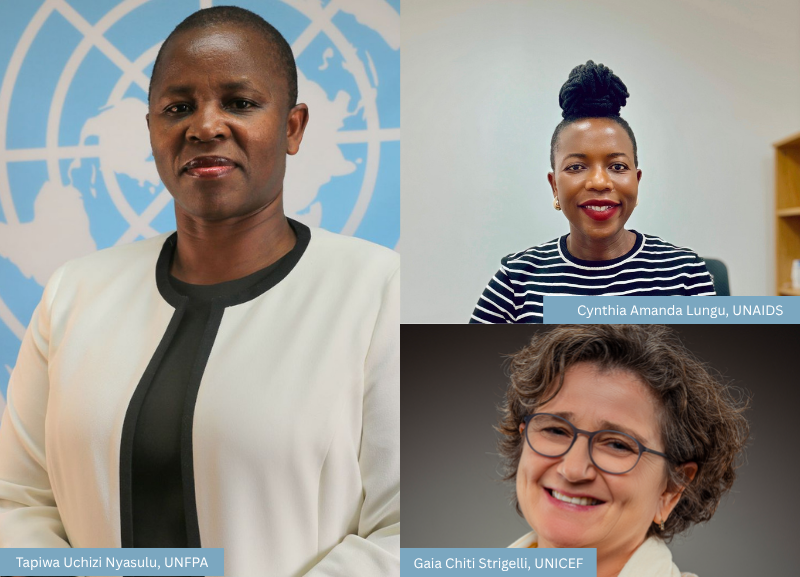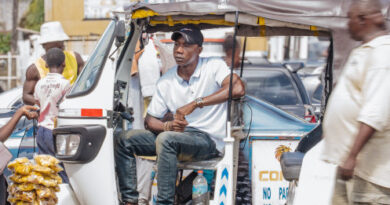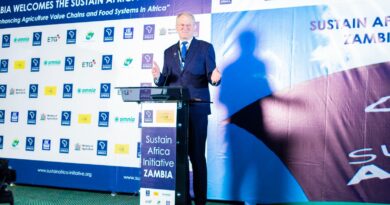‘Positive Masculinity’ is Changing the Game in Africa
“Where do you learn to be a man?”
That’s the question 24-year-old Nkosikhona Fakudze is grappling with in Eswatini, as he navigates his relationship with his girlfriend and daily life while his father is away as a migrant worker.
Amid growing concerns globally about young men opposing women’s rights, a new concept is rising across Africa: Positive Masculinity. Research from the Joint UN Regional Programme 2gether 4 SRHR shows it’s sparking important conversations in the media, communities, and policy – and it’s helping young men like Nkosikhona who want to do the right thing.
So, how’s this playing out in practice? From Nkosikhona’s personal journey to regional policies, here are five initiatives that are changing the narrative around masculinity across Africa.
- Eswatini’s club for young men
With his father out of the house, Nkosikhona found the answers he was looking for on how to be a man at Kwakha Indvodza. It’s a community initiative in Eswatini that meets men and boys in the places men traditionally congregate, such as gyms. In the past five years, more than 4,100 adolescent boys and young men have enrolled in the programme. Supported by UNAIDS and UNFPA, men and boys come together to talk about taboo issues, often concerning the sexual and reproductive health rights of the women in their lives.
The shifts have been tangible: 65% have since accessed health services, including for HIV testing, condom usage and referrals for sexually transmitted infections. “I get my sex education here, at Kwakha Indvodza,” says Nkosikhona. “I remember the things I learn when I am with my girlfriend… like how important it is to use condoms so that we don’t get HIV. She said to me, ‘I love you because you want to keep me safe and make me happy’.”
- Uganda’s ‘male engagement strategy’
The East African country was the first in the region to develop a male engagement strategy, back in 2019, with UNAIDS support. The strategy involves high-profile men, including the Kabaka of Buganda Kingdom, championing successful health campaigns. Take Ugandan Reverend Canon Gideon Byamugisha. He had just been ordained when he was widowed, left to raise a baby, and tested positive for HIV.
Rather than hide his diagnosis, he co-founded Inerela+, a network of HIV positive faith leaders who use their respected position in society to help end stigma and promote treatment. Since that initial pilot, Lesotho, Malawi, Zimbabwe and Kenya have followed suit with their own male engagement strategies, championing more positive male role modelling.
- Lesotho’s dramatic reduction in intimate partner violence
Young people, especially young mothers, have shared that older health workers are often judgmental, discriminatory, and that services are not confidential. But when health information is shared by similarly-aged peers, the impact is stronger, not only for mums and babies but for male partners too. Peer networks, which include men and boys, offering support, home visits and safe spaces to discuss health and services in Lesotho, led to increased testing and treatment and reduced transmission rates of HIV, along with reduced postnatal depression by 30%.
Crucially, this package of peer support saw intimate partner violence reduce by 44%. These programmes are now being rolled out in a number of countries in the region, including Zimbabwe and South Africa.
- Reduced child marriage in the Horn of Africa.
The majority of those displaced in emergencies are women and girls, increasing their risk of sexual violence. Girls are forced into child marriage or transactional sex, both last resorts when food is scarce. UNICEF found that child marriage and female genital mutilation increased due to drought in the Horn of Africa, affecting girls as young as 12. So humanitarian response teams have developed a toolkit of teaching materials, focusing on self-esteem for adolescent girls and positive masculinity for boys. First piloted in Mozambique, rates of child marriage have reduced, and the programme has since expanded to Somalia and Ethiopia.
- Better laws for initiation rites in Southern Africa
Rites of passage preserve traditional cultures, but some coming-of-age initiation ceremonies can reinforce the subservience of women to men, minimising consent and increasing HIV risk. But UNFPA’s analysis found that working with elders and involving young people in taboo discussions reduces harm. We looked at four countries in Southern Africa: Malawi, Eswatini, South Africa and Zambia. The good news is that all four countries have laws that are designed to protect adolescents from harmful cultural practices. This is partly thanks to the work done by advocates over many years, ultimately protecting young women AND men.
Going forward
This month, leaders from across Southern Africa are meeting in Cape Town for the SADC Regional Consultative Forum (25th–28th November) to engage more men and boys to get involved in advancing human rights. The goal: to drive gender equality, prevent GBV, and reduce HIV infections across the region.
As the SADC forum kicks off, the conversation about positive masculinity is just the beginning. Leaders across the continent are working to shift social norms, with efforts that extend from government policies to local communities. For young men like Nkosikhona, this shift means finding safe spaces to talk about important issues like consent and HIV prevention. It’s through these conversations that we can create lasting change, where men and boys are key partners in building healthier, more equal communities for everyone.



